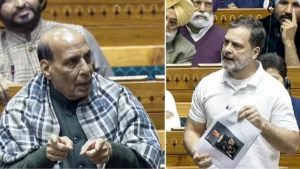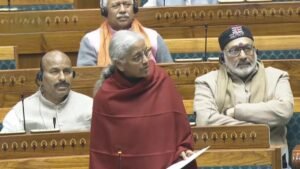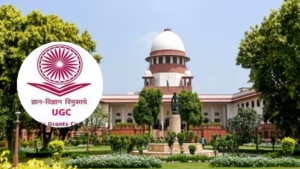A disturbing political incident has rocked West Bengal after a TMC leader made violent threats against a BJP legislator. The shocking statement “will burn your face with acid” was caught on video and quickly spread across social media platforms. This extreme threat has drawn widespread condemnation from political parties, civil rights groups, and concerned citizens nationwide.
Understanding the Context Behind This Shocking Incident
The violent threat emerged during heated political exchanges between rival party members in West Bengal’s charged atmosphere. Political tensions often reach dangerous levels during election seasons and legislative sessions across Indian states. However, this particular incident crosses basic lines of civilised political discourse and democratic debate.
The TMC representative made these inflammatory remarks during a public gathering where emotions were running particularly high. Video footage shows clear audio of the threatening language directed toward the BJP MLA present at the event. Social media amplified the controversy as clips spread rapidly across various platforms and news outlets.
Political observers note that such extreme rhetoric reflects deeper issues within India’s increasingly polarised political landscape. The normalisation of violent language in political discourse poses serious risks to democratic institutions and public safety.
Immediate Political Reactions and Public Response
Opposition parties immediately seized upon this incident to criticise the ruling party’s approach to political discourse. BJP leaders demanded immediate action against the TMC official who made the threatening statement about acid attacks. Senior party figures called for a police investigation and legal consequences for such dangerous rhetoric.
Civil society organisations also expressed alarm at the escalating nature of political threats in recent months. Women’s rights groups particularly condemned the reference to acid attacks, which predominantly affect female victims across India. Legal experts emphasised that such threats could constitute criminal intimidation under existing laws.
The incident highlights growing concerns about political violence and intimidation tactics used across party lines. Democratic norms require respectful debate and disagreement without resorting to threats of physical harm or violence.
Breaking Down the Legal and Social Implications
Acid attacks represent one of the most heinous forms of violence, causing permanent physical and psychological damage to victims. Using such imagery in political threats trivialises the suffering of actual attack survivors nationwide. Legal experts argue this language could constitute criminal intimidation under various sections of Indian law.
Key legal considerations include:
- Criminal intimidation charges under the relevant penal code sections
- Potential hate speech violations depending on the specific context
- Election commission violations, if made during campaign periods
- Civil defamation claims for reputational damage caused
The social impact extends beyond immediate political consequences to broader questions about acceptable public discourse. Children and young people witness these exchanges through media coverage and social platforms. Political leaders bear responsibility for modelling appropriate behaviour in democratic societies.
Historical Context of Political Violence in West Bengal
West Bengal has experienced decades of political violence across different party regimes and electoral cycles. The state’s political culture often involves heated rhetoric that sometimes escalates into actual violence. This latest incident fits within troubling patterns that many observers hoped would diminish over time.
Previous incidents have included physical attacks on opposition leaders, intimidation of voters, and destruction of party offices. The Election Commission has frequently deployed additional security forces during the Bengal elections due to violence concerns. Both major parties have faced accusations of using intimidation tactics against opponents.
However, explicit threats of acid attacks represent a new low in political discourse, even by Bengal’s standards. Such language normalises extreme violence against women and vulnerable populations across society. Political leaders must recognise their influence on public attitudes and behaviour patterns.
Media Coverage and Social Media Impact
News outlets across India extensively covered this shocking incident, with many expressing editorial concern about declining political standards. Television debates featured heated discussions about acceptable limits in political competition and democratic discourse. Print media editorials called for stronger action against leaders who make violent threats.
Social media platforms became battlegrounds as supporters and critics shared competing narratives about the incident’s significance. The viral nature of such content means millions of users witnessed the threatening language within hours. Platform policies regarding violent content faced scrutiny as the video continued circulating widely.
The speed of information spread in the digital age means political missteps can quickly become national controversies. Leaders must understand that their words reach far beyond immediate audiences to influence public discourse broadly.
Calls for Accountability and Democratic Reform
Opposition parties demanded the immediate suspension of the TMC leader who made the threatening statement about burning faces. They argued that ruling parties must demonstrate zero tolerance for such extreme rhetoric from their representatives. Cross-party cooperation on this issue could help establish better standards for political behaviour.
Civil rights organisations called for broader reforms to address political violence and intimidation across party lines. They proposed training programs for political leaders about appropriate discourse and legal consequences for violations. Educational initiatives could help voters reject candidates who use violent rhetoric.
Electoral reforms might include stronger penalties for candidates who make threats or use inflammatory language during campaigns. The Election Commission could establish clearer guidelines about acceptable political speech and enforcement mechanisms. Democratic institutions require protection from those who would undermine them through violence and intimidation.
Looking Forward: Lessons for Democratic Discourse
This incident serves as a wake-up call about the deteriorating quality of political debate in contemporary India. Democratic societies depend on respectful disagreement and peaceful resolution of political differences through established institutions. Threats of violence have no place in legitimate political competition.
Political parties across the spectrum must recommit to basic standards of civilised discourse and mutual respect. Leaders bear special responsibility for setting positive examples rather than inflaming tensions through dangerous rhetoric. The health of democratic institutions depends on maintaining these fundamental norms consistently.








Be First to Comment